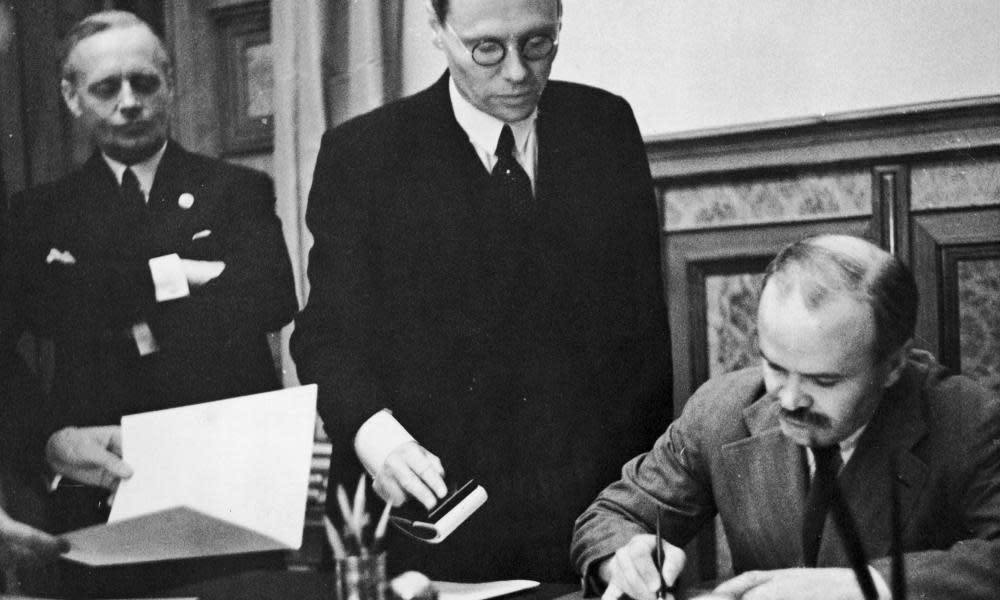How the Molotov-Ribbentrop pact helped win the war | Letters

Contrary to Tim Ottevanger’s view (Letters, 16 October) of the Molotov-Ribbentrop pact of August 1939, a pact that astonished the western world, I think it was one of the most significant in the last 200 years. At that time any intelligent observer, including Stalin, knew that the Nazis planned to eradicate Bolshevism and to gain Lebensraum in eastern Europe. The Soviets were engaged in a gigantic educational, agricultural and industrial transformation lasting less than a score of years, a process that took the UK over a century. They had to ensure that they were capable of defeating an onslaught from the greatest military machine ever known. The pact not only gave the USSR an extra 22 months of further industrialisation, but also allowed it to occupy eastern Poland after the Nazis attacked it on 1 September 1939. But for this extra 100+ miles of “buffer zone” the Nazis would have probably captured Moscow in 1941 and much land beyond it. Instead, as Churchill said, the Soviets “ripped the guts out of the Wehrmacht”. But for this the Nazis would have won the war in Europe with cataclysmic implications for the UK.
David Davis
Chesterfield
• Join the debate – email guardian.letters@theguardian.com
• Read more Guardian letters – click here to visit gu.com/letters

 Yahoo News
Yahoo News 
